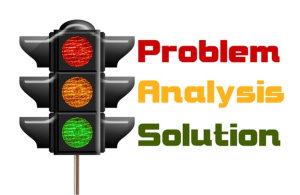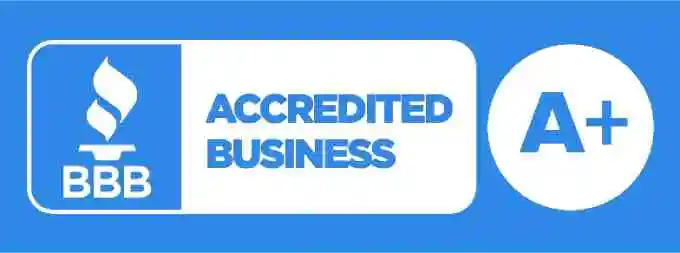Did you know that every year 2 million people are injured in car accidents? The only way to be ready is by having the right car insurance. Yet, getting the best deal when you choose your insurance can be tricky.
If you’re here it means that you want to learn how to choose car insurance. It isn’t as complicated as you might think. The key is having the right information in hand.
Not sure where to start? We’ve got you covered.
Here’s your beginner’s guide on how to choose the right car insurance:
How to Choose Car Insurance
The best way to handle a car crash is by having the right auto insurance. You might be thinking that to have the best coverage you’ll have to pay a hefty price. But that may just be one of the many auto insurance myths floating around.
Here are some simple steps you should follow to pick the best car insurance deal:
Research, Research, and More Research
When picking car insurance, don’t choose the first option you hear. You should research before deciding what coverage. What type of coverage do you want?
What carriers offer this coverage? What are your state’s insurance requirements? These are some of the questions that can give you a better idea.
An insurance agent can help you find out what coverage is the right one for you. Not all carriers are alike, so it’s a good idea to research what company can offer you the coverage.
Also, you should look into your state insurance requirements. Make sure that your coverage complies with these laws. You could get in trouble if your policy doesn’t meet these requirements.
Compare Quotes and Insurance Carriers
After you’ve done your research, you need to get quotes from companies. If you’re renewing your coverage, you should do an annual review of your coverage comparing the renewal price with other competitors.
This way you can confirm that you’re getting the best rate. You should compare prices and coverage when picking car insurance.
If you’re planning on holding more than one type of insurance, you should consider bundling your policies. Many insurance agencies offer better rates if multiple insurance products are bundled.
Look at Different Insurance Deductible Options
The insurance deductible from your policy is the amount you’ll pay in a claim before the insurance starts paying for the damages. The cheaper your deductible is the more you’ll pay for your insurance policy.
Maybe the policy you’re being offered has a $100 dollars deductible. For most people, this deductible is too low. Can you handle paying a $500 deductible?
If your answer is yes, you should ask for a policy with a higher deductible. Companies shouldn’t have a problem offering you quotes with different deductibles. That way you’ll have a clearer idea of what’s the best option for you.
Can You Pick the Right Auto Insurance Without Breaking Your Bank Account?
Yes, you can pick the right auto insurance without spending large sums of money. Remember to focus on comparing quotes, the coverage you need, and deductible you want.
We’re confident that if you follow our how to choose car insurance guide, you’ll get the best deal.
Want to get the best auto insurance deal? We can help!
Fill out our quote form to get your rates today!
 8 Auto Insurance Terms You Need to Know Before Shopping for a Policy
8 Auto Insurance Terms You Need to Know Before Shopping for a Policy
Shopping for your first auto policy can be overwhelming. Especially since it can be difficult to parse through the difficult and obscure insurance lingo as you acquire your quotes.
Here are eight auto insurance terms you should keep an eye out for, as well as brief explanations as to what they mean for you and your vehicle.
1. Deductible
Your deductible is the amount of money you agree to pay out of pocket before your coverage covers the remainder of the claim.
Let’s say you’re in an accident that causes $5,000 worth of damage. If you have a $2,5000 deductible, you’re going to have to pay a pretty penny before your insurer covers the rest.
The lower your deductible, the less you have to pay. However, lower deductibles can mean higher monthly rates, so it’s a bit of a trade-off.
2. Premium
Though the term ‘premium’ may sound a little intimidating, it’s actually quite simple. Your premium is simply the amount of money you pay to keep your vehicle(s) insured with your carrier.
3. Comprehensive Coverage
Comprehensive coverage covers damage to your vehicle that isn’t directly caused by an auto accident. This can include things like acts of nature, theft, vandalism, and more.
It’s always a good idea to get comprehensive coverage just to give your vehicle an extra layer of protection.
4. Gap Coverage
Buying a new car is an exciting experience, but taking out an auto loan is a different matter entirely. Your car is an investment, and one you should protect.
Should you get into an accident before your loan is repaid, you’ll need to cover the remainder of the loan out of pocket.
Unless you have gap coverage, that is. With gap coverage, should your new vehicle sustain enough damage to warrant it totaled, your insurer agrees to cover the remainder of your loan.
5. Vehicle Identification Number (VIN)
Before you can get an auto insurance quote, you’ll need to provide a few details. One of the most important details is your vehicle’s VIN or vehicle identification number.
This helpful number tells your car’s history. Its make, model, and even basic schematics of much of what’s under the front hood.
6. Bodily Injury Coverage
Though no one ever hopes they’re in an auto crash, accidents happen. In the event that one or more parties involved are injured, bodily injury coverage pays for the resulting damages.
7. Coverage
All all the insurance jargon you’ll come across, this is perhaps the easiest to understand. Your coverage simply refers to what is and isn’t covered under your current policy.
Please note that you can adjust your coverage at any time should you feel your current coverage is too much or too little.
8. Claim
When an accident occurs, you’ll need to file a claim with your insurer. Your claim contains all of the details of the occurrence including time of the accident, damage sustained, and who or what was at fault.
See… now buying an auto insurance policy doesn’t have to be intimidating, especially now that you know these eight common auto insurance terms.
Ready to find coverage that fits your needs? Get in touch or get a quote today and see how easy it is to save.
 5 Smart Questions to Ask Your Auto Insurance Company
5 Smart Questions to Ask Your Auto Insurance Company
There were roughly 6.3 million auto accidents in 2015 alone. Nobody plans to have an accident, so many people don’t fully know what their financial responsibilities would be if they were to have one.
Premiums, deductibles, liability. Lots of terminologies that many people just glance over when reading it on paperwork.
Have you found yourself wondering if you’re currently getting the best deal with your auto insurance company? Confused about parts of your policy? Good news.
Keep reading below for five questions you definitely should ask your next insurance company.
1. What Coverage Do I Need?
A basic question, but you’d be surprised by how many people don’t know the answer. The answer, however, will depend on what kind of driver you are and where exactly you live.
Most states require liability coverage. This covers costs related to any injuries, deaths, or damage resulting from an accident. Some states also required uninsured or underinsured motorist protection.
Be sure to speak with the agent about other requirements or coverage that would be helpful for you.
2. What is Actually Covered?
Getting into an accident or finding your car damaged in a parking lot is a stressful thing. This is why it is important to understand how your insurance will work before that happens.
Depending on your policy, your insurance may not cover things like tow trucks or rental cars. Ensure you have collision coverage, which covers the replacement or repair of your car after an incident.
Comprehensive coverage is helpful in cases of vandalism or theft. This also covers if you hit a deer or other animal and need repair work.
3. What Discounts Can I Get from my Auto Insurance Company?
While your premium price will mostly be dictated by your coverage and deductible choices, there are many discounts that can help cut costs.
One of the most common ways to save is through multiple policies. If you have renters or life insurance with the same company as your car insurance, they will often give you a discount.
Other auto insurance discounts include safe driving, good student grades, and discounts for hybrid cars. You may also get a discount if you pay your policy in full rather than a portion every month.
4. Out of Pocket Expenses
Make sure you know what your deductible is and be prepared to pay it. Let’s say an accident leaves you responsible for $2,000 worth of damage to your own car. If your policy deductible is $3,000, guess what? Your insurance won’t cover anything.
5. How Does My Job Impact Coverage?
When applying for coverage, you will disclose information on driving habits. This means how far your daily commute is and the nature of your job.
For example, many policies will not cover your car if you use it for sales work at the time of an accident.
Ensure the Best Insurance Deal
You should now feel much more comfortable about finding the best auto insurance company for your situation. Whether you are about to purchase your first or tenth car, understanding your insurance will save you money in the long run.
Do you still have some questions? Check out our list of even more helpful tips in choosing the best car insurance company.
 Top 5 Tips for Choosing the Best Car Insurance Company
Top 5 Tips for Choosing the Best Car Insurance Company
Purchasing car insurance is overwhelming for some. There are so many unfamiliar terms, policy types, and different plans to choose from.
However, nearly 90 percent of American drivers possess car insurance. With the right guidance, you can handle something that is so common.
Read on for a guide to finding the best car insurance company. Explore 5 tips for choosing a quality car insurance policy at an affordable rate.
1. Compare Car Insurance Policies
First and foremost, you need to shop around for the best coverage. To be clear, this does not mean finding the cheapest policy.
Instead, you want to compare the variables that drive price. Items like deductibles and coverage amounts are the true measure of a great policy.
Price may be a deciding factor between two policies with similar coverage. However, auto insurance is a product where quality is more important than cost.
2. Search For Complaints
There are resources available for shoppers to research the quality of coverage. Specifically, many states track customer satisfaction and complaints.
One evaluation tool available to shoppers is called a consumer complaint ratio. This ratio tracks the number of complaints for every 1000 claims filed to the insurance company.
Each state goes to great length to ensure frivolous complaints are not counted in the ratio. Each complaint is justified before counting against the company’s rating.
3. Check J.D. Power and Associates
In addition to your state’s regulatory agency, J.D. Power and Associates is another source of customer satisfaction ratings. Instead of just complaints, J.D. Power and Associates issue a comprehensive rating.
Many factors are considered including policy options, price, and how quickly claims are processed. Customer service is also factored into the company rating.
4. Get Referrals From Friends and Family
Your friends and family members are great first-person resources to utilize. Ask around to see if they recommend a particular insurance company.
If there are customer service issues, you are likely to hear about them first hand. In addition, they may point you in the direction of a popular policy feature or a way to save money.
5. Consult With the Experts
There are certain professions that deal with insurance companies on a routine basis. Two professionals that work interactively with auto insurance companies are personal injury lawyers and auto body shops.
If you have any contacts in these career fields, now is the time to reach out and get expert advice. For example, auto body shops have first-hand experience in the claims process.
In many cases, their payment comes directly from the insurance company. Your friends at the auto body shop are going to know which company was a nightmare to deal with.
 Finding the Best Car Insurance Company – Wrapping It Up
Finding the Best Car Insurance Company – Wrapping It Up
With some due diligence and internet research, you are certain to find a great auto insurance policy. Resources such as your state’s regulatory agency or J.D. Power and Associates provide you with valuable data.
It is also an effective strategy to consult with professionals who frequently deal with insurance companies.
When you are looking for the best car insurance company, please contact us for assistance.


